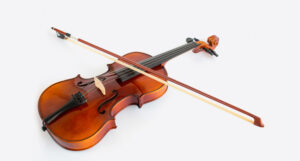As private music teachers who work with beginner students every day, we often hear the same question: Is learning violin hard? The honest answer is yes—it can be challenging, especially at the start. But we also want to reassure you: learning the violin is 100% doable with the right mindset, guidance, and consistent practice. Like any skill worth having, it takes effort, but the rewards are absolutely worth it.
Whether you’re a parent of a young beginner or an adult starting from scratch, here’s what to expect when picking up the violin—and why the journey can be just as fulfilling as the destination.
Why Violin Can Be Challenging at First
Violin is often described as one of the more difficult instruments to begin, and for good reason. Unlike instruments like the piano, where notes are clearly laid out, violin students have to:
- Learn precise finger placement without frets
- Master how to hold the instrument and bow simultaneously
- Train their ear for pitch accuracy
- Develop coordination between both hands
That said, is learning violin hard forever? Absolutely not. The first few months involve building muscle memory and listening skills, but progress happens faster than you might think—especially with a great teacher by your side.
What Makes Learning Violin Rewarding
Despite its challenges, the violin offers some unique benefits that make the journey enjoyable:
- Expressive Sound – The violin has a wide emotional range, allowing even beginners to express themselves musically.
- Solo and Ensemble Options – Students can enjoy solo pieces or join orchestras, chamber groups, and string quartets.
- Tangible Progress – With regular lessons and practice, students see measurable improvement, from playing their first simple tunes to performing full pieces.
How Private Lessons Make a Difference
As teachers who specialize in private music instruction, we know that personalized guidance makes all the difference when tackling a new instrument. Here’s how one-on-one lessons help:
- Customized pacing based on your learning style and goals
- Real-time feedback to fix posture, bow grip, and finger placement
- Motivation and support during plateaus and breakthroughs
We’ve seen students of all ages go from struggling to confident players within just a few months. For more on how progress typically unfolds, check out How Long Till I Can Play the Piano, Guitar, or Sing?—many of the same ideas apply to violin.
Learning Resources and Support
Want more context about learning violin as a beginner? The American String Teachers Association offers helpful tools and standards for students and families. Pair that with private lessons and consistent practice, and you’re on your way to success.
FAQ: Is Learning Violin Hard?
How long does it take to learn violin?
Most students can play simple songs within 3–6 months. Reaching an intermediate level typically takes 1–2 years with regular practice.
Can adults learn violin too?
Absolutely! Adults can be excellent learners with the right mindset and teacher. It’s never too late to start.
What age should kids start violin lessons?
Kids as young as 4 or 5 can start with the right setup and a patient teacher. Every child is different, but early exposure is a great advantage.
